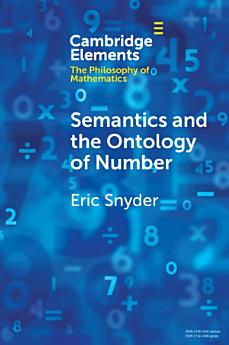Semantics and the Ontology of Number
พ.ค. 2021 · Cambridge University Press
eBook
147
หน้า
reportคะแนนและรีวิวไม่ได้รับการตรวจสอบยืนยัน ดูข้อมูลเพิ่มเติม
เกี่ยวกับ eBook เล่มนี้
What are the meanings of number expressions, and what can they tell us about questions of central importance to the philosophy of mathematics, specifically 'Do numbers exist?' This Element attempts to shed light on this question by outlining a recent debate between substantivalists and adjectivalists regarding the semantic function of number words in numerical statements. After highlighting their motivations and challenges, I develop a comprehensive polymorphic semantics for number expressions. I argue that accounting for the numerous meanings and how they are related leads to a strengthened argument for realism, one which renders familiar forms of nominalism highly implausible.
ให้คะแนน eBook นี้
แสดงความเห็นของคุณให้เรารับรู้
ข้อมูลในการอ่าน
สมาร์ทโฟนและแท็บเล็ต
ติดตั้งแอป Google Play Books สำหรับ Android และ iPad/iPhone แอปจะซิงค์โดยอัตโนมัติกับบัญชีของคุณ และช่วยให้คุณอ่านแบบออนไลน์หรือออฟไลน์ได้ทุกที่
แล็ปท็อปและคอมพิวเตอร์
คุณฟังหนังสือเสียงที่ซื้อจาก Google Play โดยใช้เว็บเบราว์เซอร์ในคอมพิวเตอร์ได้
eReader และอุปกรณ์อื่นๆ
หากต้องการอ่านบนอุปกรณ์ e-ink เช่น Kobo eReader คุณจะต้องดาวน์โหลดและโอนไฟล์ไปยังอุปกรณ์ของคุณ โปรดทำตามวิธีการอย่างละเอียดในศูนย์ช่วยเหลือเพื่อโอนไฟล์ไปยัง eReader ที่รองรับ




